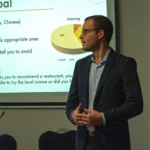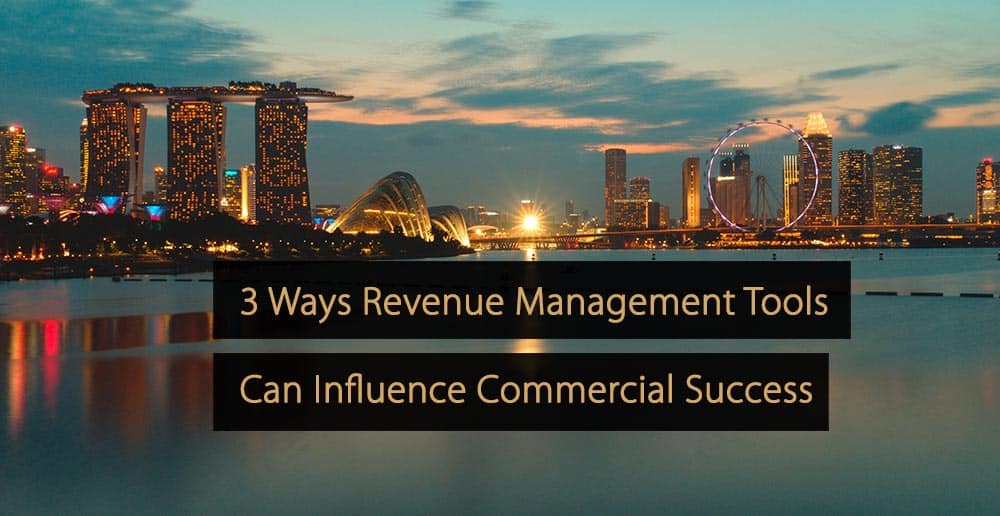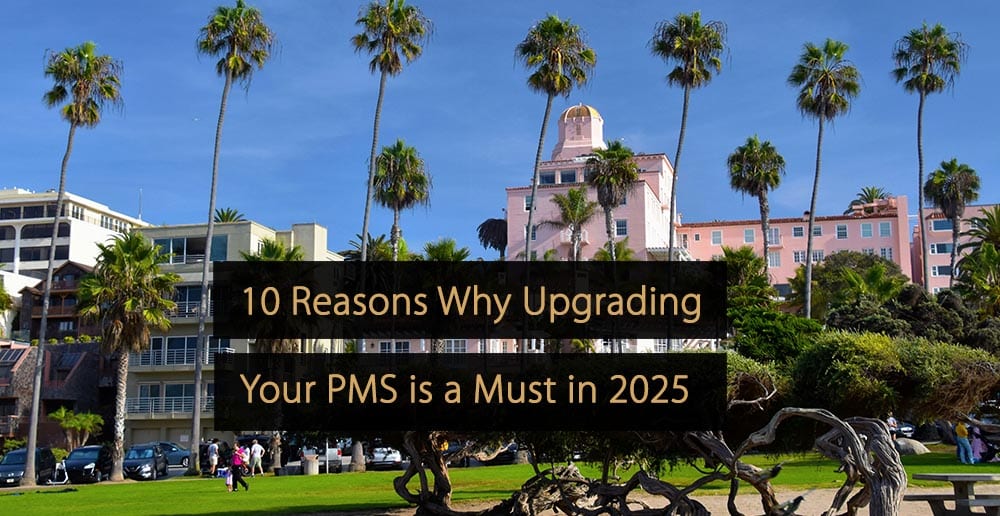Question for Our Hotel Marketing Expert Panel
What Practices Make a Hotel Booking Process Effective? (Question by Thomas Dieben)
Industry Expert Panel
Our Industry Expert Panel exists out of professionals within the hospitality & travel Industry. They have comprehensive and detailed knowledge, experience in practice or management and are forward-thinking. They are answering questions about the state of the industry. They share their insights on topics like revenue management, marketing, operations, technology and discuss the latest trends.
Our Marketing Expert Panel
- Thomas Dieben – Founder, Becurious
- Tamie Matthews – Revenue, Sales & Marketing Consultant, RevenYou
- Jacopo Focaroli – CEO & Founder, The Host
- Kaylie Holley – Hospitality and Tourism Marketing Professional
- Peter Ricci – Clinical Professor and Director of Hospitality & Tourism Management Program at Florida Atlantic University (FAU)
- Lisa Bouma – Sales & Hospitality at Lisa Bouma Sales Services
- Dustin Caromano – Director of Marketing and eCommerce, Première Advisory Group
- Cory Falter – Partner and Visionary at Lure Agency
- Nicole Sideris – Founder & Prinicipal Consultant, X Hospitality
- Thom de Graaf – Digital Marketing Specialist at Orange Hotel Marketing
- Matthias Dybing – Co-Founder & Director at Nuvho
- Luminita Mardale – Director Of Marketing And Business Development, Vienna House
- Max Starkov – Adjunct Professor Hospitality Technology, New York University
- Ask Our Panel a Question
- Join Our Expert Panel
“To effectively optimize your reservations funnel you’ll need insight into the performance of both your website and booking process. It might be challenging to make improvements without knowing your conversation rate and identifying bottlenecks. To obtain these insights, consider reaching out to your digital marketing agency, website agency, and/or booking engine provider to request reports and analyze the data. Additionally, ensure that the integration within your website is seamless, with call-to-action (CTA) buttons available on all relevant pages (e.g. room type overview, booking benefit overview, special offers, etc.). It’s also important to have a booking button available on all pages and views of your website.
Once guests begin the booking process, consider the number of steps it takes to complete a reservation and whether selecting a date is user-friendly. If there’s no availability, are alternative dates suggested? Additionally, guests should be able to easily enhance their stay with upsell items. Or select a specific room, on a particular floor, with a particular view. Furthermore, examine the fields guests must fill in to complete their booking and consider offering modern payment technologies like Apple and Google Pay. Finally, review the confirmation page to ensure it’s visually appealing and offers features like adding reservations to guests’ calendars. By considering these factors, you can improve your website’s booking process and ultimately boost your conversion rate.”
“When looking at booking processes, I’d recommend looking to Booking.com or Expedia for inspiration. They have the money, time, and resources to research and fine-tune the number of clicks it takes for a customer to book. A prospective customer can book within 3 clicks if enrolled. We can’t replicate that on our sites but we need to get close.
Consider aspects such as • How easy is it for a customer to find the book button? • Can they access all the information they want on both a phone and desktop? • Where are the answers on your website to the questions you receive over the phone? • Book, amend, cancel: how easy is this process? • Room types and rate plans: are these the same names and descriptions as on an OTA so customers can compare? • Decision paralysis: how much are you offering and is it too much?”
“A hotel booking process is effective when it’s simple, clear, accurate, and convenient. And when it provides a seamless experience for the guest. With minimal steps required to complete the booking, and immediate confirmation once the booking is completed. Optimization for mobile is another crucial step. It should provide a process that can be easily completed on smaller screens. Data, in my opinion, remains king: hotels can leverage guest data and technology solutions to provide tailored recommendations and enhance the booking experience.”
“Simplicity and speed. Overcomplicating the process will result in higher rates of abandonment. Anticipate the guest’s journey through the booking process. Most importantly, frequently test for broken steps in the process.”
“Time from start to finish makes it more efficient. People are bombarded with information and choices. The easier your technology moves from interest to booking with ease, the better. I would streamline questions asked, even tentatively confirm their booking before asking for a great deal of personalized info. Make the guest feel “attached” to the booking or “responsible” as soon as possible in the booking process.
Booking speed, conversion rate, and ability to get the best rate EASILY on the date selected. The most effective methods combine technology to do it at the lowest price across GDS, transaction/credit card fees, OTA commissions, and the like. The MOST effective is simply the one that books the HIGHEST NUMBER OF ROOMS at the LOWEST TOTAL CHANNEL COSTS. And, when I say “channel” it implies the cost of the technology and EVERY associated fee. From franchise fees to switching fees, and so on.”
“An effective hotel booking process is characterized by efficiency, user-friendliness, and transparency. Prompt customer support, real-time availability, and pricing are also crucial factors in making the booking process more efficient. Airbnb owners, for example, can use Airbnb’s integration with Google Calendar. This would enable hosts to sync their availability and ensure real-time updates while avoiding double bookings.“
“An efficient booking process considers multiple elements since each can directly impact the success of your booking engine conversion rate.
1 – The number of steps to complete a booking 2 – The number of choices served to a guest 3 – Customer recognition or personalization 4 – Payment solution (Google or Apple Pay + Financing Options like Affirm) 5 – Consistency between website and booking engine 6 – Data entry (manual vs. automated) 7 – Reassurance messaging 8 – Clear call to action 9 – Trigger messaging (Last room available, booked 9 times in the last 24 hrs.) 10 – Thoughtful upgrades/add ons.”
“Hotels must embrace the concept of booking small meetings online with no human interaction unless the guests want it. The notion of trying to control the sales process is annoying, turning off some prospects, and driving them to those who do offer that. This is a great way to free up sales time to proactively look for bigger prospects. Additionally, hotels could do a much better job at attracting direct meetings and events by reevaluating their website experience.
Most hotels are only speaking to the experienced meeting planner, totally ignoring the non-professional planner who needs a lot of hand-holding and has no idea what an RFP is. Totally overwhelming an administrative assistant with 20 forms, asking questions they don’t have answers for. Does your website make it easy to reach out and ask a simple question without picking up the phone? Or are you forcing them to complete long RFP forms or pick up the phone? Make it easy breezy for anyone who’s trying to plan an event to work with you.”
“Clear content, concise terms, minimal steps, easy navigation, and instant communication. Analyze the touchpoints and make it simple and easy for the guest. Lose the unnecessarily heavy-lifting fields and processes in order to make the transaction simple.”
“First, it’s important to be transparent and clear on what the total costs are. What’s included and excluded? What are the cancellation terms? Secondly, make it clear that the official website is the best option. This could be because of lower prices, exclusive offers, or the best terms. Finally, you could show a calendar with the prices per day. This way users with flexible dates can select the most favourable option.”
“Understand the guest path to booking and don’t become single-minded about the direct booking process. Understand that people are driven by value, convenience, recognition, and ease of booking. If you’re not anti-OTAs, you missed the point. They’re convenient for consumers to search larger destinations in one place. How many times have you searched 70 direct websites to find accommodation…never!
I go to a booking site because it’s convenient to filter, sort, etc. Do I book there? No, I search for the best value after I choose a hotel. I got educated by the Trivago girl who told me so many times that I could get a better deal for the same hotel, room, date, etc. Therefore, use the OTAs at the top of the funnel, get onto their first page to get more views and traffic.
Ensure that you’ve covered all touch points lower on the booking funnel after your hotel is chosen. This includes Google business listing, Google ads on your hotel name, Google Hotel Ads (HPA organic and paid), good SEO for your organic listing, business advantage from TripAdvisor to feed back into your website after they look at reviews (believe or not, TA is still one of the most visited sites in the world), etc.
Make sure that consumers don’t get to see the cheapest booking engine or website once clicked through to your website. Spend money on visuals (photos and videos), be succinct, have functional tech even if it’s not the prettiest, cut the fluff to a minimum (80% of consumers have already chosen a hotel by the time they get to your website, know everything about it, OR they’re returning guests who already know the hotel….see what I am saying?). Most importantly, show value to convert and upsell to increase the transaction value: That’s where the ROI is!”
“In my opinion, one of the most important factors is an online hotel reservation system. One with payment integration and fast communication between guest, hotel team, and 24/7 support.”
“Hotel website conversion and abandonment rates are the main indicator of how successful the hotel booking process is. These rates are especially worrying with independent hotels, where conversion rates are at most 0.5% -1.5% i.e. abandonment rates are 98.5%-99.5%. Mobile-last property websites, poor CMS and CRS technologies, dated and bland visual and textual content, lack of merchandising strategy and technology, lack of reward program or guest appreciation program in place, market and rate disparity, lack of enticing offers and packages, etc. are only some of the reasons for these poor results.
Hoteliers are spending their limited marketing dollars on SEO, paid search, metasearch, online media, PR, and social media in order to bring users to the hotel website, and allowing 98.5% – 99.5% of them not to book. It’s a complete waste of precious resources! It all starts with Mobile-first website design+architecture. With over 65%-70% of website visitors now visiting the hotel website via mobile devices, a mobile-first website is a must. The website download speeds across various devices inevitably affect conversion rates on the hotel website. Fast download speeds drastically improve the user experience and increase the user’s desire to transact on the site.
According to Google, 53% of visits are abandoned if a mobile site takes longer than 2.5 seconds to load. Next comes the quality of the booking engine, the website merchandising technology, reservation abandonment technology, etc. Remember: Acquiring a new website visitor is 5 to 15 times more expensive than retaining an existing one.”
Ask a Question & Join Our Expert Panel
Would you like a question to be answered by our Industry Expert Panel? Or would you like to join our community of experts and share your experience, insights, and knowledge with fellow industry professionals? Via the buttons below you can submit a question or submit a request to become part of our expert panel.
More Tips to Grow Your Business
Revfine.com is the leading knowledge platform for the hospitality and travel industry. Professionals use our insights, strategies, and actionable tips to get inspired, optimize revenue, innovate processes, and improve customer experience.Explore expert advice on management, marketing, revenue management, operations, software, and technology in our dedicated Hotel, Hospitality, and Travel & Tourism categories.




















Leave A Comment